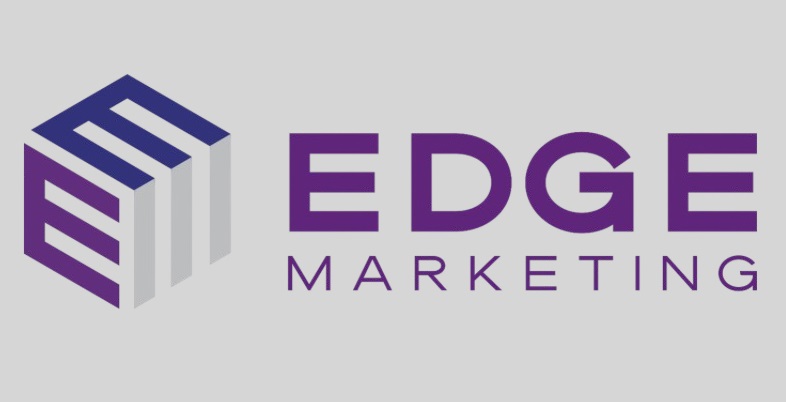By Dr. Sangeeta Chhabra
In the ever-changing and rapidly evolving modern business world, efficiency is a necessity, not a luxury. The tools you use have a significant bearing on your firm’s ability to deliver high-quality service, especially for CPA firms and accounting practices, which have unique workflows and compliance requirements. Practice management systems form the core of your business’s digital infrastructure.
Every practice management software provider claims to be the best and their software the greatest. It isn’t easy to find out which one is best for you. There are no cookie-cutter solutions that meet all your requirements. Every software has its pros and cons. The best software available in the market may not be the best fit for your requirements. The software you choose must align with your scalability, operational, and compliance requirements.
Let us look at some of the most important considerations that every CPA and accounting firm should evaluate before finalizing a practice management software.
- Related article: Why Now is the Right Time to Modernize Client Accounting Services
- Related article: Why Your Accounting Firm Needs Managed IT Services
1. Core features: Are the essentials covered?
It’s easy to get dazzled by flashy dashboards and fancy AI chatbots, but the question you should be asking yourselves is: Does it meet your basic requirements?
The right practice management solution should address key areas, including billing and invoicing, basic accounting, tax return preparation, record management, and inventory management. Depending on your industry, other considerations may include location tracking, log maintenance for audit trails, support for peer review for PCAOB streamlining, and CPA society inspections.
These lay the foundation for a good practice management system. The absence of these or misalignment of any of these parameters may make the entire practice management system useless. No fancy add-on or customization can fix that.
2. User experience: Will your team use it?
Developers may load a practice management system with high-tech and latest features, but if it is not user-friendly, it may not be the right one for you. If the UI or UX does not align with the needs of the end users, your employees, in this case, will not be motivated to work.
The best practice management software is the one that is self-explanatory for users or requires minimal training before they can start using it. It should ideally have guided walkthroughs to help CPAs, accountants, and admins navigate tax, audit, and advisory workflows without any unnecessary hassle. If your users struggle to navigate the practice management system, it will only lead to frustration and frequent errors.
3. Integration capabilities: Can it talk to your other systems?
While practice management will form the backbone of your digital infrastructure, you will use other audit and accounting tools. While selecting the right practice management solution, ensure it can integrate with the rest of your digital tools, such as QuickBooks, Xero, and Sage Intacct.
Additionally, it should also have direct links to bank feeds and payroll providers. No integration or poor integration will only burden your team with more manual work, making their jobs cumbersome.
Seamless integration will eliminate the need for duplication, eradicate errors, and synchronize the workflows.
4. Scalability: Will it grow with you?
Your business will not always be the same. You would expect it to grow in size and may even diversify into other services or products. Keep this in mind when finalizing the practice management system for your organization. It should align with your firm’s long-term plans and support scaling up or diversification seamlessly.
Check if it permits the following:
- Multi-user access with role-based permissions.
- Multi-location or multi-department support.
- Flexible pricing tiers.
5. Data security and regulatory compliance: Is your data safe?
One of the most essential things for a business is the data. A breach of data can even lead to the firm becoming bankrupt. Confidentiality of data is paramount for any business, and organizations must protect all data in the best way possible.
Hence, it should be a key consideration when selecting your practice management software and not an afterthought.
Ensure that the practice management system you select:
- Uses end-to-end encryption.
- Is compliant with relevant regulations like AICPA, PCAOB, GDPR, or SOC 2.
- Has data backup and recovery options.
- Maintains audit trails and user activity logs.
6. Deployment model: Cloud or on-premises?
Another difficult decision a business must make is the deployment model, whether it wants data in the cloud or on-premises. Both have their pros and cons; it boils down to business requirements, priorities, and budget.
If your organization has a remote or hybrid work culture, the cloud may be the only way. Cloud accounting is an effective solution for accounting and CPA firms, enabling them to store files locally during peak tax season for quick access, while also syncing them to the cloud for disaster recovery. Hosting your practice management software alongside other accounting applications on the cloud with a managed hosting provider ensures seamless access, enhanced security, and reliable performance.
- Related article: The Good and the Bad of Cloud Vendor Relations
- Related article: How to Maximize the Value of Your Cloud Services
On the other hand, if you are a bank and customer data is super critical, an on-premises solution, though relatively expensive, offers you peace of mind and greater control. Think through based on your requirements before finalizing.
7. Mobile accessibility: Can you manage on the move?
The world is not the same after the COVID-19 pandemic. Remote and hybrid work have become omnipresent. People have untethered themselves from their desks. A well-designed web platform or a well-appointed mobile app is the need of the hour. It enables secure time entry, expense capture on the go, and electronic signatures on engagement letters, making it indispensable for CPAs and accounting firms.
However, this can spin your budget out of control. You need to consider how important it is for your organization to have a mobile app or a web platform and whether the additional cost is justified.
8. Support and training: Will help be there when you need it?
It is common to have bugs in new software or hiccups during roll-out. A 24/7 responsive and reliable support team, along with a well-appointed training program, will ensure a smooth rollout and business continuity. A CPA or accounting firm should look for a CPE-accredited training program.
However, the need for 24/7 support depends on the nature and size of your business, as well as whether you require email or chat support. Everything comes with a cost, and being sure about your needs will help you ensure that you address them without overspending.
A CPA or an accounting firm may opt for extended support hours during the tax season when workloads are typically high, and any downtime may significantly hamper work.
9. Pricing and contract terms: What is the real cost?
Practice management software providers offer various pricing models. It could be per user, per month, or per module. Some may even charge you separately for support hours or integrations. Be sure to understand what you are paying for so that you can make a fair comparison between different vendors and practice management software options.
Make sure the pricing structure is transparent. It is essential not to overlook certain aspects that may seem unimportant and expensive but may be extremely useful and save a significant amount of money in the long term when you decide to scale up or diversify.
10. Customization and reporting: Can it be tailored to you?
No one solution fits all practice management systems out there. Every business is unique, and so should your practice management system. It is always better to look for a bespoke solution or at least get some customizations to ensure the practice management system addresses your business requirements.
A CPA or an accounting firm should ensure they have customizable dashboards and reports for realization rates, utilization metrics, and client profitability analyses.
All practice management solutions are not made equal and offer various levels of customization. You have to do your due diligence to find the one that meets your requirements. These solutions are expensive, and a wrong or ill-fitting practice management system can become a very costly mistake.
The final word
Finding the right practice management software is challenging. You cannot change it every year. Once implemented, it becomes a long-term part of your operations.
Choosing a practice management solution is a strategic decision for CPA and accounting firms, and they should finalize it by carefully considering their requirements, not just for today but in line with their business plan for years to come. They should ensure that it aligns well with their compliance obligations and empowers their team productivity.
The most inexpensive or most popular solution may not be the right one. A CPA and accounting firm should find the right one that addresses the challenges or requirements unique to their business. They should consider the practice management solution from a long-term perspective and think about whether or not it will still work for their business five or even 10 years down the line.
It is not a tactical decision; it is a strategic one that will impact the business’s efficiency.

ABOUT THE AUTHOR:
Dr. Sangeeta Chhabra, co-founder and executive director of Ace Cloud Hosting, is a leader and innovative entrepreneur with more than 20 years of experience in the IT sector. She has positioned the company as a leading global provider of IT and managed cloud services, celebrated for its QuickBooks hosting tailored for the accounting sector, managed security services, Desktop as a Service, and public cloud offerings for SMBs and enterprises. Under her leadership, Ace Cloud Hosting was honored as the Best Outsourced Technology Provider at the CPA Practice Advisor Readers’ Choice Awards 2023, among other accolades. Beyond her professional successes, Dr. Chhabra is a passionate advocate for women’s empowerment and is committed to fostering an inclusive environment at Ace Cloud Hosting.
Thanks for reading CPA Practice Advisor!
Subscribe Already registered? Log In
Need more information? Read the FAQs




